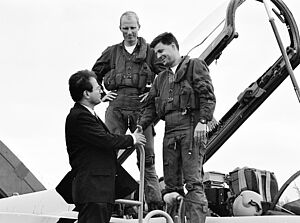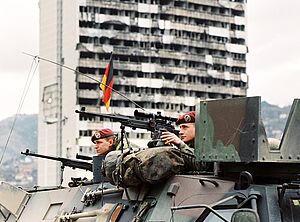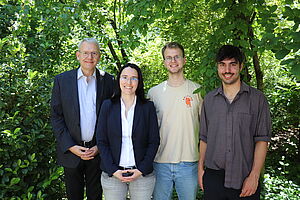- The Institute
- Research
- Dictatorships in the 20th Century
- Democracies and their Historical Self-Perceptions
- Transformations in Most Recent History
- International and Transnational Relations
- Edited Source Collections
- Dissertation Projects
- Completed Projects
- Dokumentation Obersalzberg
- Center for Holocaust Studies
- Berlin Center for Cold War Studies
- Publications
- Vierteljahrshefte
- The Archives
- Library
- Center for Holocaust Studies
- News
- Dates
- Press
- Recent Publications
- News from the Institute
- Topics
- Reordering Yugoslavia, Rethinking Europe
- Munich 1972
- Confronting Decline
- Digital Contemporary History
- Transportation in Germany
- German Federal Chancellery
- Democratic Culture and the Nazi Past
- The History of the Treuhandanstalt
- Foreign Policy Documentation (AAPD)
- Dokumentation Obersalzberg
- Hitler, Mein Kampf. A Critical Edition
- "Man hört, man spricht"
- Dates
- Press
- Recent Publications
- News from the Institute
- Topics
- Reordering Yugoslavia, Rethinking Europe
- Munich 1972
- Confronting Decline
- Digital Contemporary History
- Transportation in Germany
- German Federal Chancellery
- Democratic Culture and the Nazi Past
- The History of the Treuhandanstalt
- Foreign Policy Documentation (AAPD)
- Dokumentation Obersalzberg
- Hitler, Mein Kampf. A Critical Edition
- "Man hört, man spricht"
Reordering Yugoslavia, Rethinking Europe
A Transregional History of the Yugoslav Wars and the Post-Cold War Order (1991–1995)

The year 1991 marked a major turning point in the history of Yugoslavia, Europe, and the international order. The dissolution of the USSR marked the end of an era, ushering Europe and the world into a new age whose concrete form was impossible to predict. The far-reaching conflicts and tensions that erupted in the Yugoslav Wars that year proved to be fundamental challenges to the constitution of the formation of a Post-Cold War Order: nationality conflicts and “ethnic cleansing,” displacement and humanitarian emergencies, state collapse and military interventions. For contemporary actors, therefore, the Yugoslav Wars became a key experience with far-reaching implications on the reordering of Europe in terms of norms, institutions, and security policies.

To explore the interplay between the Yugoslav Wars and the transformation of the international order, the project takes a transregional, entangled history approach that combines methods from international contemporary history and Southeast European studies. The project thus a contributes to a comprehensive European history of the Yugoslav Wars, while also considering the transatlantic context and global developments. The empirical archival work focuses on the Serbian-Croatian conflict and the Bosnian War up to the Dayton Agreement of 1995. Incorporating an international network of experts, the project also takes into account other actors – such as the United States and Russia – and the Kosovo War of 1998/99.

This interdisciplinary collaborative project, funded by the Leibniz Association, is being led by Agnes Bresselau von Bressensdorf and conducted in partnership with the Leibniz Institute for East and Southeast European Studies (IOS) in Regensburg and the Chair for Southeast European History at the Humboldt University (HU) in Berlin. Four subprojects, handled by Lukas Daub (IfZ), Bennet Groen (IfZ), Kristof Gosztonyi (HU), and Stefan Sagberger (IOS), focus on Southeastern, Central Eastern, and Western European actors and their attempts to reconfigure the post-Yugoslav space and European political order.
Furthermore, independent research contributions by Christian Methfessel and Ingo Loose are an essential part of the project. Through its collaboration with over 20 partner institutions both within Germany and abroad, the project will actively contribute to the international networking of experts on Southeastern Europe and contemporary history.
The following subprojects are being carried out at the IfZ:
- Crossing Borders and Re-ordering European Boundaries: Refugees from Yugoslavia in Germany and Austria (Bennet Groen)
- Europe in Search of Itself: The Reordering of the Post-Yugoslav Space and the Making of a Post-Cold War Order (Lukas Daub)
Subproject at IOS:
- Making Its Way toward Europe by Distancing Itself from the Balkans? Czechoslovakia, Its Successor States, and the Yugoslav Wars (Stefan Sagberger)
Subproject at Humboldt-Universität:
- Humanitarian Interventionism from Below: Civil Society, Local Authorities and Statehood in the Bosnian War (Kristof Gosztonyi)
Bildnachweis
- Slider: Bundesbildstelle der Bundesregierung, B 145 Bild-00002161, Fotograf: Engelbert Reineke
- Bundesbildstelle der Bundesregierung, B 145 Bild-00020191, Fotograf: Engelbert Reineke
- Bundesbildstelle der Bundesregierung, B 145 Bild-0000273
- Bundesbildstelle der Bundesregierung, B 145 Bild-00020191, Fotograf: Engelbert Reineke
- Foto: Kristina Milz (IfZ)


